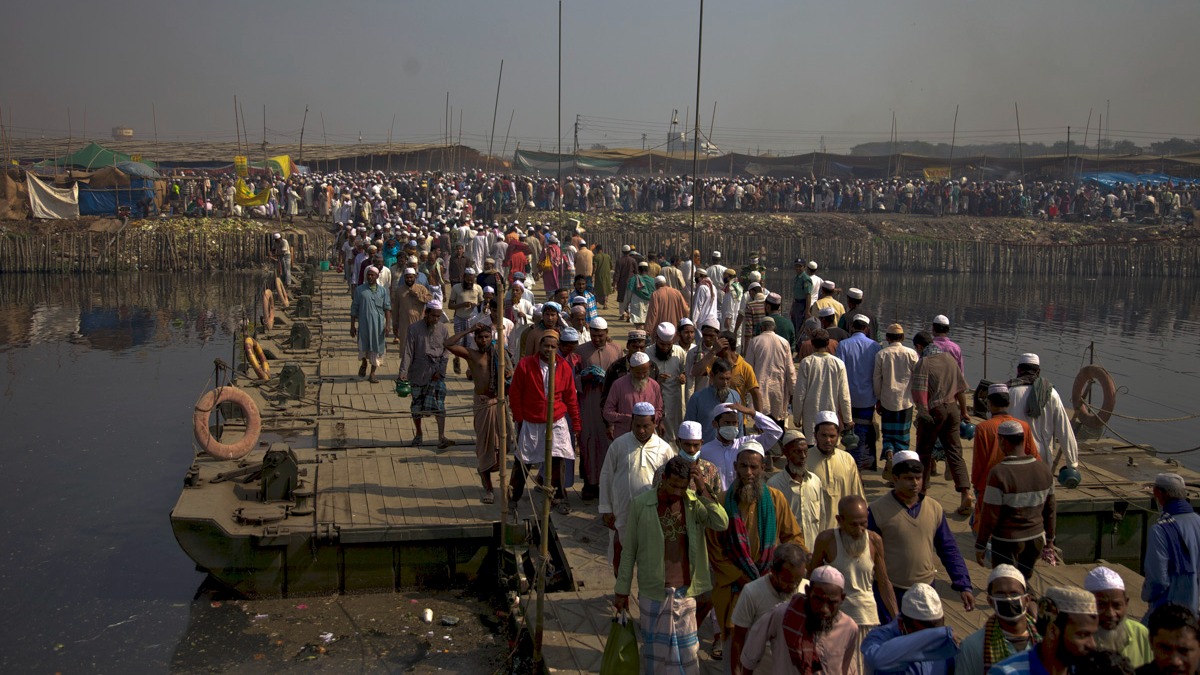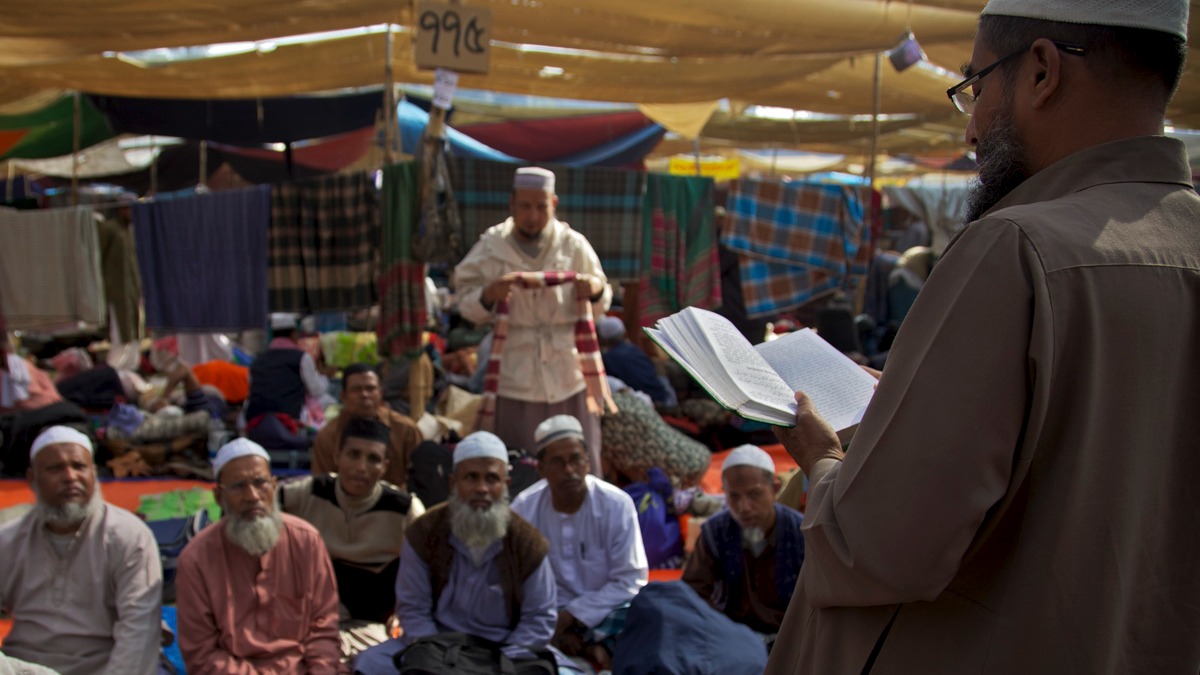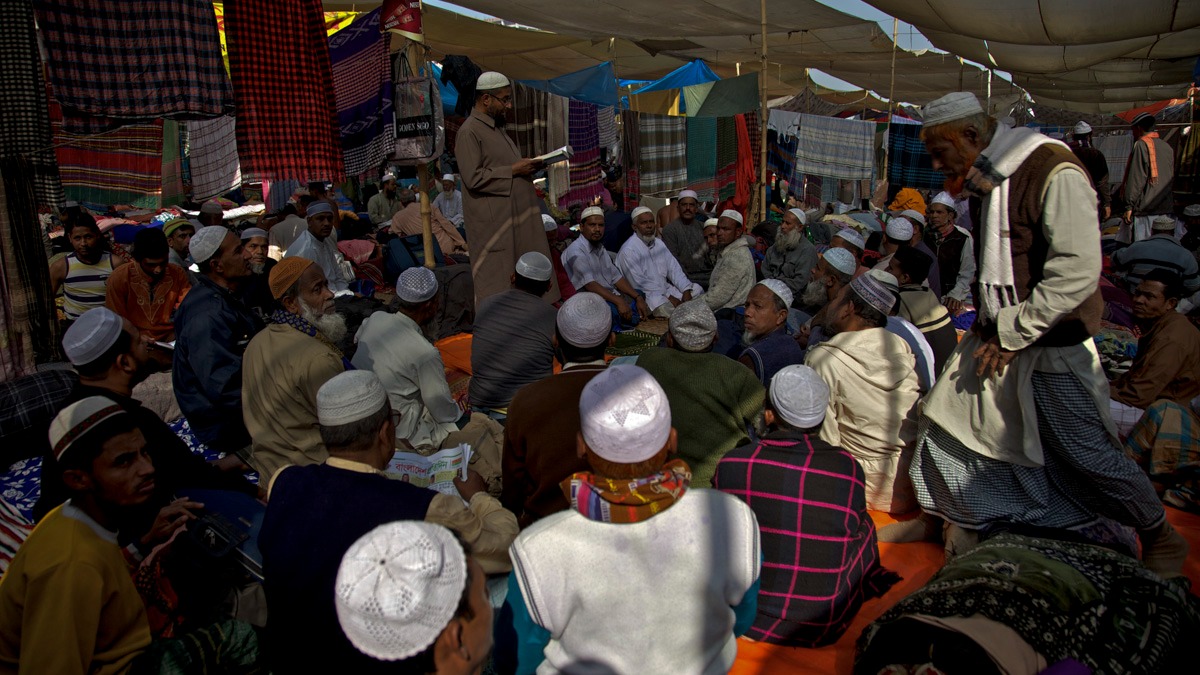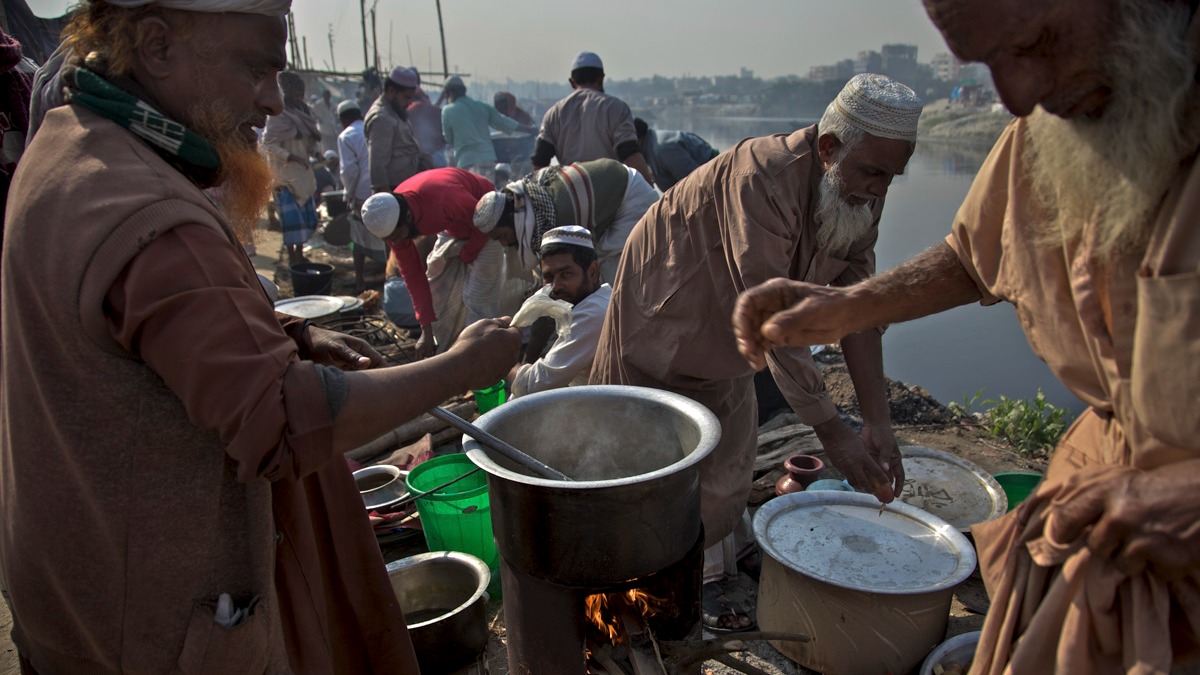
North of the city, by the river Turag
Initially, it began as a small gathering in 1967 but has since grown into one of the world’s largest peaceful religious gatherings, second only to the Hajj pilgrimage in terms of attendance.

Initially, it began as a small gathering in 1967 but has since grown into one of the world’s largest peaceful religious gatherings, second only to the Hajj pilgrimage in terms of attendance.
Bishwa Ijtema, one of the largest congregations of Muslims in the world, is an annual event held in Bangladesh that draws millions of people from all corners of the globe. For over half a century, this monumental gathering has served as a symbol of unity, spiritual awakening, and shared devotion among Muslims. Unlike other religious events, Bishwa Ijtema is marked by a deep sense of peace, reflection, and a collective commitment to faith.
The term Bishwa Ijtema translates to "World Congregation" in English. The event takes place in the town of Tongi, located just north of Dhaka, Bangladesh. Initially, it began as a small gathering in 1967 but has since grown into one of the world’s largest peaceful religious gatherings, second only to the Hajj pilgrimage in terms of attendance. It is held every year, typically in January or February, attracting not just Bangladeshis but Muslims from over 150 countries.
At its core, the Ijtema is a time for worship, learning, and spiritual purification. The event focuses on the teachings of the Tablighi Jamaat, a non-political, grassroots Islamic movement that aims to encourage Muslims to return to the fundamentals of their faith through prayer, reflection, and community building.
Bishwa Ijtema is primarily a time for Dhikr (remembrance of Allah), prayer, and collective reflection. Devotees come to the Ijtema grounds to listen to religious leaders' sermons, participate in communal prayers, and take part in discussions about living a life in accordance with Islamic principles.

A key element of the gathering is the Dua (supplication), a collective prayer for the well-being of humanity and the unity of the Muslim Ummah (community). The Dua, which is recited on the final day of the Ijtema, is one of the most poignant moments, with millions of participants raising their hands in unison, asking Allah for peace, prosperity, and mercy.
In addition to religious rituals, the Ijtema emphasizes the importance of brotherhood and unity. The gathering is not just about individual worship, but about Muslims from all walks of life coming together, irrespective of race, ethnicity, or nationality. It is a rare moment where the material distinctions of the world are put aside, and all attendees are united by a common purpose: to seek closeness to Allah and to deepen their understanding of Islam.
The Tablighi Jamaat plays a central role in organizing Bishwa Ijtema. The movement, founded in India in 1926 by Maulana Muhammad Ilyas Kandhlawi, focuses on spiritual renewal through personal faith and spreading Islamic teachings to others. While not involved in political activities, the Tablighi Jamaat emphasizes that true Islam is found in one’s everyday conduct, with a particular focus on the Five Pillars of Islam, prayer, and kindness toward others.
Bishwa Ijtema serves as a platform for Tablighi Jamaat to convey messages of simplicity, humility, and devotion, aiming to inspire individuals to reconnect with their faith and live a life of piety and peace. The Ijtema is a space where religious scholars and leaders from around the world come together to spread these teachings and reinforce the importance of personal spiritual development.
For many Muslims, attending the Bishwa Ijtema is an opportunity of a lifetime, an experience that transcends geographical, linguistic, and cultural boundaries. It is a chance to be part of something larger than oneself—a global community of believers united in their devotion to Allah.

Beyond its religious significance, the Ijtema has become a symbol of peace and unity. In a world often marked by division and conflict, Bishwa Ijtema stands as a testament to the ability of faith to bring people together, fostering a sense of global brotherhood. The peaceful nature of the gathering, where millions of people coexist harmoniously, offers a powerful message about the potential for peace and mutual understanding in the world.
The experience of Bishwa Ijtema is not just confined to the days of the gathering itself. The journey to the Ijtema grounds in Tongi is often an arduous yet spiritual pilgrimage. Pilgrims arrive days in advance, sometimes walking long distances or traveling from faraway countries, with a sense of devotion and anticipation.
As the Ijtema progresses, the grounds transform into a sea of humanity. For many, the opportunity to be in the presence of so many fellow Muslims is overwhelming—an affirmation of the strength and unity of the global Muslim community. The sense of fraternity among the participants is palpable, as people from all over the world, with different languages, cultures, and traditions, share the same space in worship and prayer.
As the Ijtema concludes, participants return to their homes, carrying with them not only the spiritual messages imparted during the gathering but also the sense of connection with their fellow Muslims. The Bishwa Ijtema is a reminder of the strength of faith and the importance of maintaining a deep connection with one’s religion and community.
For millions, the Bishwa Ijtema is not just an event, but an experience—a transformative journey of faith, brotherhood, and devotion. It serves as a beacon of unity in a world that often feels divided, offering hope, peace, and a shared purpose for those who attend.
